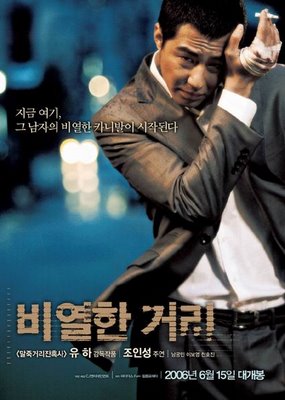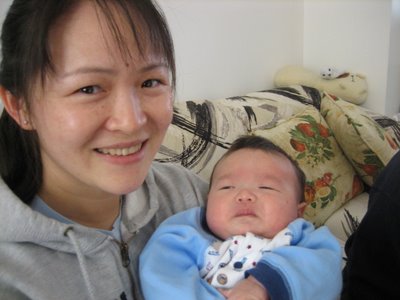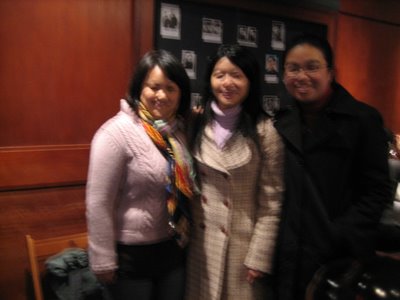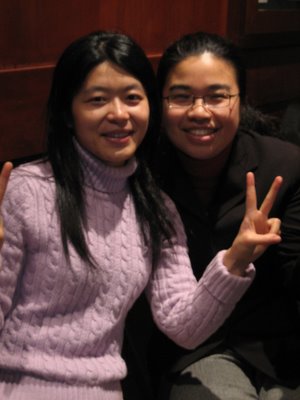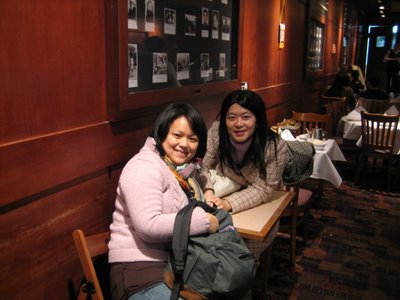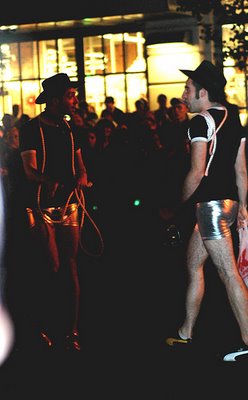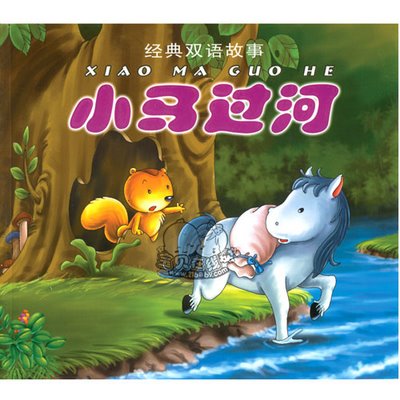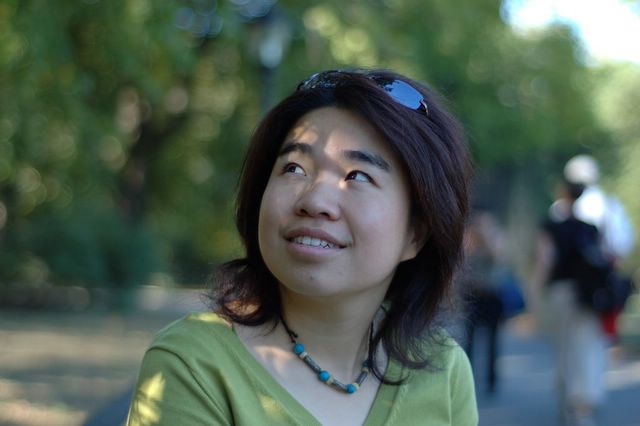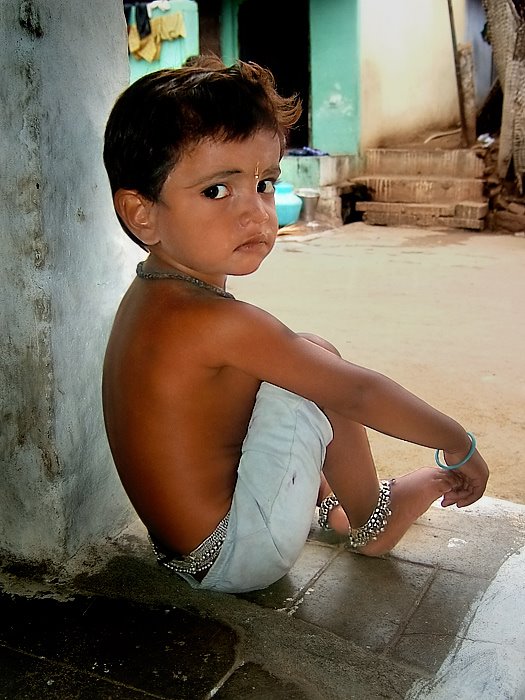"His youth
Grenouille's life begins in a
Parisian fish market, where his fishmonger mother gives birth to him among the stinking fish heads and scraps in one of the dirtiest places in all of Paris. She intends to dispose of his body along with the fish organs which surround his birthplace. However, her plans are thwarted when Grenouille expels a squeal so piercing that passers-by are alerted to his mother's plans and his life is saved, although his mother is sentenced to death because of her attempted infanticide. In his infanthood, Grenouille discovers his gift to isolate smells of every kind and preserve the scent in his memory, although the irony of this is is that Grenouille himself has no personal scent or odour.
Grenouille is passed from
wet nurse to wet nurse, ostensibly because he drinks too much of their
milk, preventing them from feeding any other children. However, the true reason for his being passed on from one nurse to another is his haunting lack of scent. This does not smell how children ought to smell stated nurse Jeanne Bussie, convinced that he was possessed by the
devil. Grenouille begins to struggle with the concept of
speech, particularly with the idea of ethical and moral words, which further isolates him from the rest of the human race. Eventually he develops the ability to speak, although he chooses not to; he is only able to associate words by their scent, his first word being
wood. After being continually rejected from society due to his lack of odour, Grenouille finds himself in the care of Madame Gaillard, a woman who runs an
orphanage for children, and who herself has lost her sense of smell since childhood, so is unable to detect his lack of odour. Grenouille grows up in the orphanage unloved and malnourished. Grenouille, isolated and outcast by his fellow race, begins to develop a disgust for his fellow humans, and distinguishes himself by his uncanny sense of smell. Grenouille begins to collect these olfactory sensations that he experiences, preserving and cataloging these scents—both good and bad—in his mental library.
At the age of 8 Grenouille is sold by Madame Gaillard to a
tanner. Grenouille survives this work which can be borne by none, with his innate tenacity and resilience which likens him to a '
tick'. After he finishes working at the tannery, Grenouille begins exploring the streets of Paris in search of new scents to add to his olfactory catalogue. One evening he discovers the scent of something unknown to him, a scent so enticing he cannot help but follow it and discover its origin. He moves in and out of alleyways in search of this ungraspable scent until finally he finds it, a beautiful young girl. This is the first time in his life that Grenouille doubts his nose, for he cannot believe that such a perfect scent could come from such a member of the disgusting race humans which he had come to despise. With the intention to preserve this perfect scent he kills the girl, only to find that upon her death the beautiful scent dies as well, evaporating into the Parisian night sky. Tortured by the loss of this perfect scent, Grenouille dedicates his life to the purpose of finding this one perfect scent, and it is this greed which continues his survival.
One evening Grenouille is told by his master to deliver the tanner's skins to the famous perfumer Baldini. Grenouille sees this as a perfect opportunity to learn from a master perfumer the way to preserve smells and teach him the ways of creating scents. Baldini, with his own problems, initially rejects Grenouille when he asks for an apprenticeship, but eventually Baldini gives in and offers Grenouille the opportunity to become his apprentice, and he is astounded by Grenouille's ability to emulate the scents of perfumes in which Baldini could not, without the use of measurements or and the techniques of a perfumer. After being taught the ways of Baldini, Grenouille is soon able to create all new perfumes from those scents placed before him, which makes Baldini the most popular perfumer in all Paris. Upon attempting to isolate the scent of objects such as
iron and
glass, Grenouille fails, and this failure affects him greatly, leading to him falling ill with
small pox. Grenouille then hears that there are other techniques besides
distillation that can be used to isolate scents. Upon this news Grenouille becomes miraculously healthy once more, and leaves Baldini to pursue these new perfume production techniques in the city of
Grasse, heading out into the forest, and beginning his journey in search for the perfect scent.
[
edit] His journey
Shortly after the departure of Grenouille, Baldini suffers a tragic death, falling into the river in his sleep. Grenouille continues his journey into the forest he develops a greater disgust for the human race, finding himself repulsed by the scent of human existence and trying to avoid the scent of humankind wherever he goes. This eventually leads him to a cave atop a volcanic mountain, the
Plomb du Cantal where the human scent is most distant from the nose of Grenouille. For seven years he stays at this place and becomes intoxicated with the smells which he preserves in his internal "palace of the smells". One day he awakens from a nightmare in which he sees himself suffocating in his own smell. After this dream he soon begins to realise that he himself possesses no personal scent, which distresses him. After this, he comes upon an inhabited area where he tells its inhabitants he had been held prisoner by robbers in a foxhole. A researcher in the town chooses to demonstrate his new theory of scents on Grenouille, which causes him to faint as a result of the scent emitted. As a result Grenouille is able to create his own scent through primitive means which emulates his own human smell. Grenouille soon finds that upon creating his own scent, he is accepted by society. But Grenouille doesn't want acceptance, he wants to have power and be able to manipulate those within the world that disgust him so much. He then leaves the town and makes his way to Grasse, his true target, where with Madame Arnulfi and her journeyman he learns new procedures in the production of perfume. When walking through the town he picks up the scent of the the girl he desired so much and who he murdered back in Paris. He follows the scent and finds a girl still at the beginning of her development. After discovering her he decides that he will wait until the girl has matured her scent, at which stage he will return to reclaim it.
After some time there is an air of terror in the town. A murderer has been on the loose killing the town's most beautiful girls, even in their houses, leaving them naked with all their hair cut off. Twenty four murders later, rich businessman Antoine Richis, sees the pattern and realizes that his beautiful daughter Laure is to be the next victim of the murderer. Antoine flees the town with his daughter Laure, but Grenouille—the murderer—soon catches their scent and follows them. Finally he kills Laure in an inn, and captures her scent just like the other twenty four girls.
[
edit] His end
Grenouille is able to be identified as the murderer on the basis of witnesses' statements. Upon his execution day, thousands wait tensely for the spectacle. However, when Grenouille appears, he is surprisingly confronted with the love by all and is revered, rather than hated, in contrast to with previous day in which the people wanted to see him dead. This is due to the perfume made from the women's smells, which surrounds him like a divine aura. Grenouille is pardoned for his crimes, and Richis even wants to adopt him. But the experience of the power has dissatisfied Grenouille, because it is not he that is loved, but the perfume which he created that is loved, so he decides to return to Paris upon finding that the satisfaction that he initially felt has transformed itself into hatred and disgust. In Paris Grenouille approaches a group of people and they accept him. After he has deliberately overdosed himself with the perfume he created, and while among the group, the effect is so overpowering that they want to hold him as an angel and own a piece of him, at which point they tear him to pieces and eat his remains."


